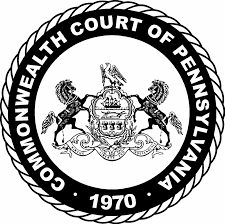Proponents of marriage equality had a big win in federal court recently in the case of Edith Windsor. Here comes a loss in the Commonwealth Court of Pennsylvania.
Sharon Warnock was a career special education teacher who was studying for ordination in the UCC, when she died at the age of sixty in February 2010. She left much of her estate to her partner Marie Himmelberger, who served as executrix. The couple had entered into a civil union in New Jersey on March 8, 2007. A New Jersey civil union has fairly sweeping implications:
…..same-sex couples may form civil unions and the parties to the union are entitled to the same rights, benefits, protections and responsibilities granted to opposite-sex couples in a marriage. The Act provides that, whenever in any law, rule, regulation, judicial or administrative proceeding or otherwise, reference is made to “marriage,” “husband,” “wife,” “spouse,” “family,” “immediate family,” “dependent,” “next of kin,” “widow,” “widower, ” “widowed” or another word which in a specific context denotes a marital or spousal relationship, that same word includes a civil union. If a decedent’s death occurs on or after February 19, 2007, property passing to the decedent’s surviving civil union partner is entirely exempt from inheritance tax, and if all of a decedent’s property passes to a surviving spouse or a civil union partner, children, stepchildren, parents, grandparents or grandchildren, an inheritance tax return does not have to be filed with the Division.
In New Jersey anyway.
Ms. Warnock was domiciled in Pennsylvania, when she died, though. What are the implications of the New Jersey civil union in Pennsylvania ? That was the question recently before the Commonwealth Court of Pennsylvania. If Ms. Warnock’s estate was treated as if she had been married to Ms. Himmelberger, the estate tax due to the Commonwealth would be over $90,000 less than if they are treated as unrelated individuals. The issue was framed as follows:
1. Whether the trial court committed errors of law and/or abused its discretion when in failed to specially address the following …:
a. Whether, for Pennsylvania Inheritance Tax purposes, a New Jersey civil union is the equivalent of a marriage between persons of the same sex.
b. Whether, if a New Jersey civil union is not the equivalent of a marriage between persons of the same sex, 2 23 Pa. C.S. § 1704 is inapplicable.
c. Whether, if a New Jersey civil union is not the equivalent of a marriage between two persons of the same sex, and if 23 Pa. C.S. § 1704 is inapplicable, does the Full Faith and Credit clause of the United States Constitution require Pennsylvania to recognize New Jersey law relative to the taxation of same sex couples and apply the spousal tax rate to the assets received by Appellant.
The Court of Common Pleas had said the New Jersey civil union did not matter:
The common pleas court sustained Revenue’s Notice of Inheritance Tax Appraisement, Allowance or Disallowance of Deductions and Assessment of Tax and concluded that “Appellant is not a child, parent, or spouse of the decedent, and further, there is no legitimate reason to apply New Jersey law or treat Appellant any differently than any other member of the non-familial class of survivor.” Opinion of the Common Pleas Court, September 28, 2011.
The Commonwealth Court agreed with Common Pleas, without much comment.
The fight against DOMA is probably drawing more attention, but decisions like this in state courts are also important. I don’t know if there would have been a different result if the couple had been married in Massachusetts or New York before moving to Pennsylvania.
You can follow me on twitter @peterreillycpa.
Originally published on Forbes.com on June 24th, 2012































































































